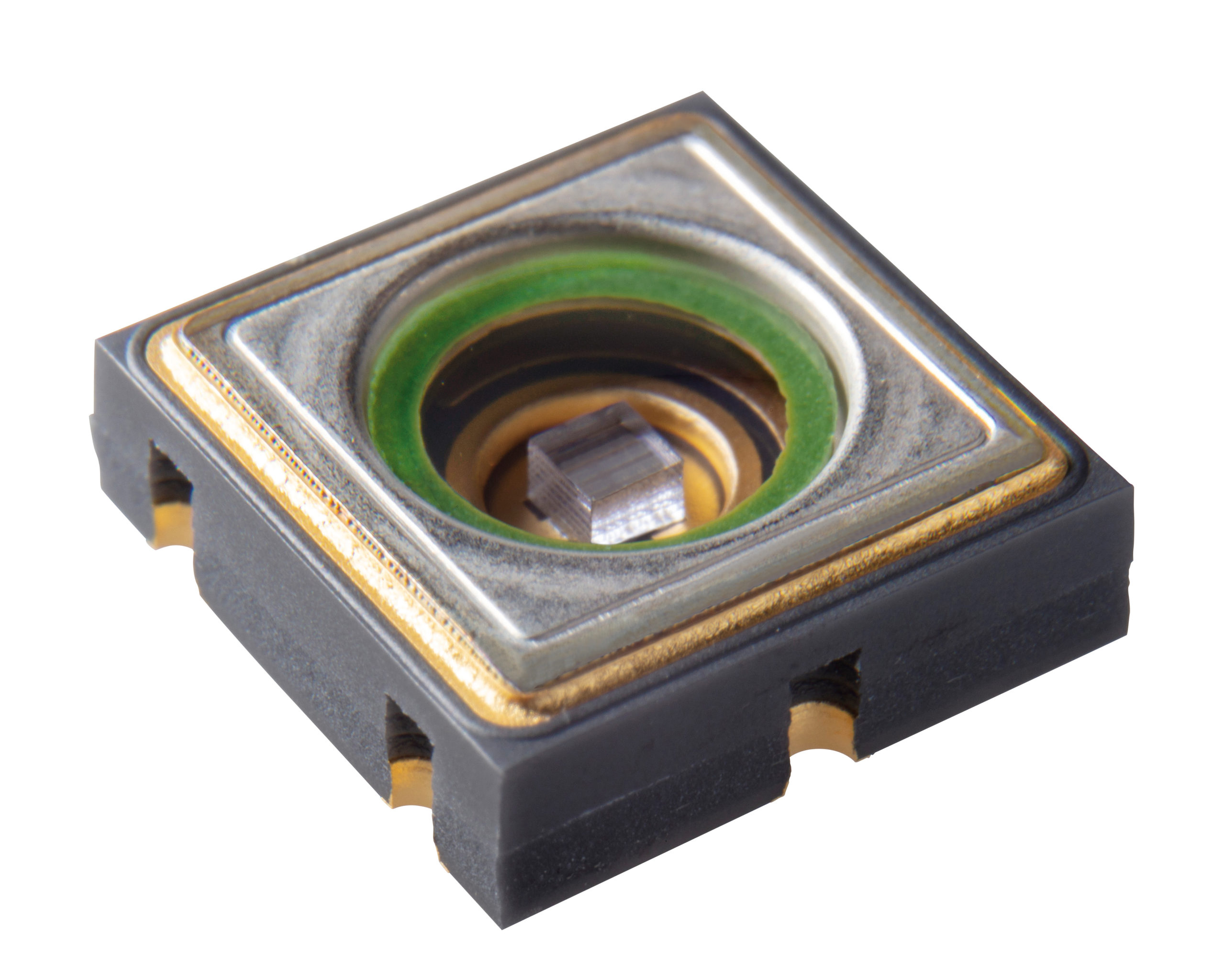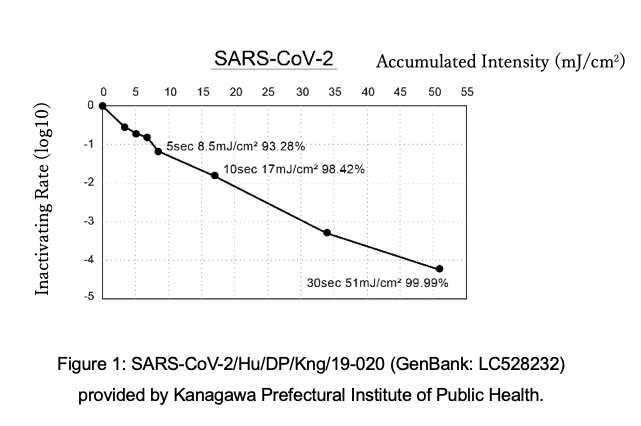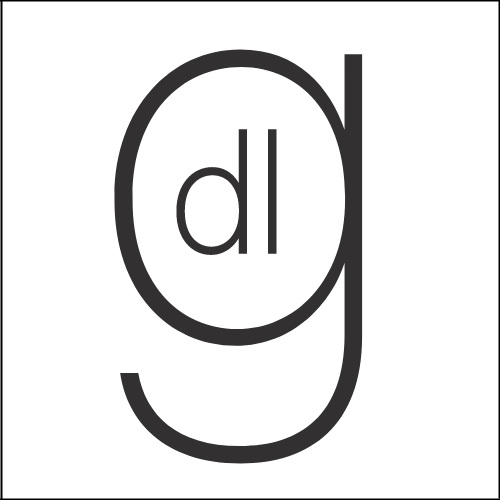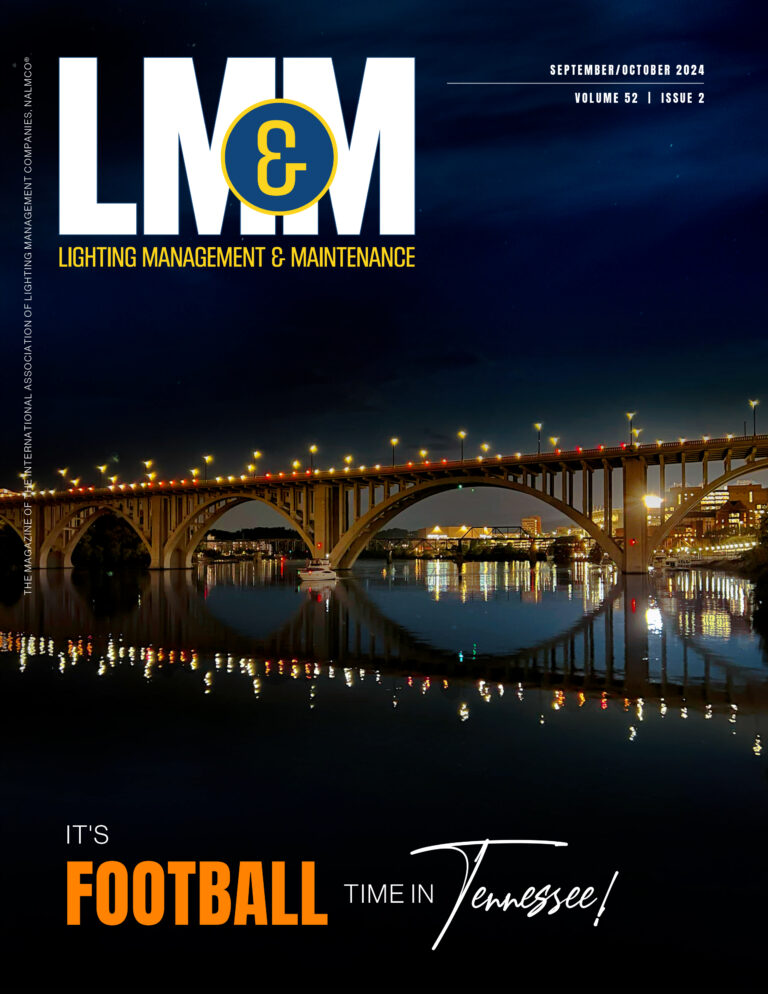
Independent research confirms NICHIA’s 280 nm deep UV LEDs can eliminate up to 99.99% of SARS-CoV-2
Tokushima, Japan – 26 January 2021: NICHIA, a leading global LED manufacturer, further demonstrates its commitment to innovation and improvements to global well-being with the public launch of its newest deep UV LED, the NCSU334B. At a peak wavelength of 280 nm, NICHIA’s deep UV LED outperforms other commercially available UV-C LED’s, regardless of wavelength, in output, efficiency and lifetime. At the same time, new independent research confirms they are also best-in-class for disinfection performance against SARS-CoV-2 virus.
NICHIA’s UV-C LED technology was extensively tested at Tokushima University to demonstrate its bacteria and virus disinfection efficiencies. Experiments conducted by the university’s Graduate School of Biomedical Sciences confirmed that irradiating SARS-CoV-2 with NICHIA’S NCSU334B for 30 seconds, with 51mJ/cm2, exhibited 99.99% inactivation (as per Figure 1 below), a key activation log to achieve. Additionally, the experiment was operated based of the NCSU334B’s binned input power and conditions of 1.7mJ/cm2 and 5 cm distance. There remains adequate room to reduce the time or increase the dosage depending on the conditions or the design of its working distance, the number of LEDs or the input power. For example, when designing with half the working distance, the performance increases 4 times.

Reflecting its leadership team’s commitment to serve global markets, NICHIA has scaled up its investment in R&D and manufacturing capacity for its UV LED solutions. Now in mass production, NICHIA’s NCSU334B at 280 nm achieving industry-leading output, efficiency and lifetime. It delivers a typical irradiance of 70mW with a wall-plug efficiency (also known as radiance efficiency) of 3.6%, an improvement of 27% compared to its predecessor. With a hermetic seal, the solution also provides long lifetime performance, especially at peak temperatures and humidity levels.
While traditional UV-C technologies, such as low-pressure mercury vapor lamps, were limited to a 254 nm peak, the most efficient wavelength to disinfect bacteria and viruses is known to be 260 nm due to the peak absorption spectrum of the DNA/RNA. However, NICHIA has demonstrated that 280 nm delivers the highest virucidal power as it has a very strong irradiance, wall-plug efficiency and lifetime, all at practical operating conditions vs. many other unreasonable claims in the market. Indeed, data highlights that the virucidal power of the 280 nm LED is approximately 1.3 times (127%) that of 265 nm LEDs. The 280 nm LED also delivers a lifetime ten times longer than a 265 nm LED.
Generally, the advantageous compact size of LED-based UV-C solutions means that they can be directly integrated within disinfection applications in restricted spaces including industrial applications, water purifiers, air conditioning systems and more.
UV-C light is making a significant contribution to combatting viruses and bacteria, simplifying traditional methods. For example, to obtain a high viricidal effect (i.e. 4-log) when using an alcohol solution for disinfection (containing 77–81% ethanol), surfaces need to be sufficiently wetted with the substance or require significant effort and time, often times beyond 30 seconds. Used in conjunction with such measures, NICHIA’s 280 nm deep UV LED can offer a high viricidal effect while saving time and effort.
NICHIA’s focus on innovation is making a significant contribution to global safety and security. While the company succeeded in 1997 to develop and mass-produce deep UV LEDs, it is continuously looking to improve its products. After many years of accumulated research into the technology of crystal growth and package structures with efficient heat dissipation, NICHIA plans to announce further expansion of its UV-C portfolio soon.
Following the positive Tokushima University studies, NICHIA contributed many prototype hand-held UV irradiation devices to both the Tokushima Prefecture and Tokushima University. This exciting Press Conference and news was captured by media throughout Japan.
Further information about the Tokushima University research and NICHIA’s NCSU334B 280 nm UV-C LED solution is available from the NICHIA website. Additionally, contact your NICHIA representative or [email protected] for additional information.
http://www.nichia.co.jp/en/about_nichia/2020/2020_121701.html
Note: NCSU334B is merely NICHIA’s part number and is not related nor bears resemblance to any other company’s product that might bear a trademark.
About NICHIA Corporation
Having ‘Ever Researching for a Brighter World’ as a motto, NICHIA takes great pride in being the technology leader and world’s largest LED manufacturer. Founded in 1956 as a specialist chemical producer, NICHIA quickly became the leader in luminescent materials (phosphors). NICHIA later developed and commercialized the first high brightness blue LED in 1993 and the first white LED in 1996. Additional nitride-based LEDs in various colors were developed, including ultraviolet and visible laser diodes. NICHIA believes that its products will remain at the forefront of energy efficient solutions throughout the world for years to come.
NICHIA will continue to be a company that makes contributions to the world by evolving its original and unique technologies and ‘Ever Researching for a Brighter World’.
For more information, visit www.NICHIA.com



